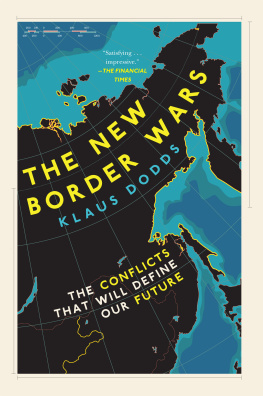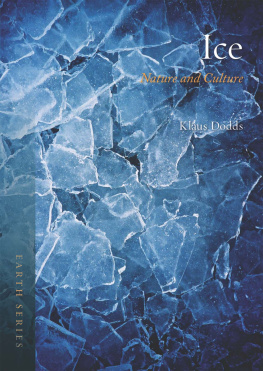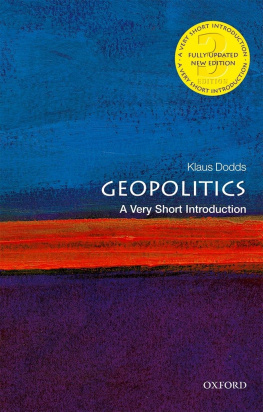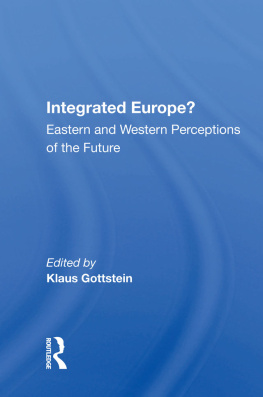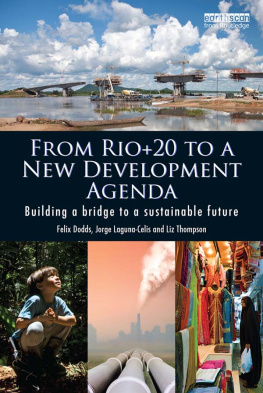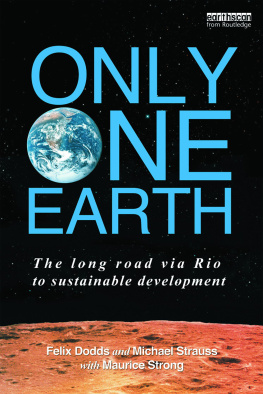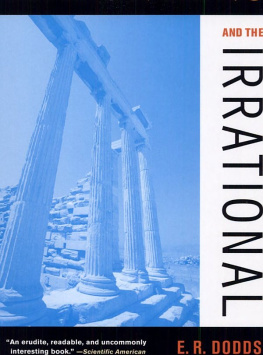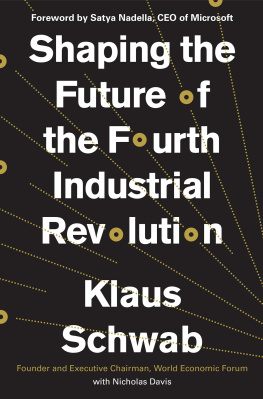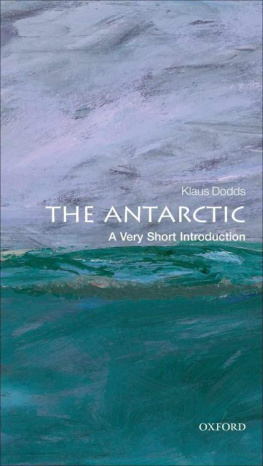Copyright 2021 by Klaus Dodds
Interior photographs Getty Images
Klaus Dodds has asserted his right to be identified as the author of this Work in accordance with the Copyright, Designs and Patents Act 1988
First published by Ebury Press in 2021
Ebury Press, an imprint of Ebury Publishing
20 Vauxhall Bridge Road
London SW1V 2SA
www.penguin.co.uk
All rights reserved, including the right to reproduce this book or portions thereof in any form whatsoever.
For more information, email
Diversion Books
A division of Diversion Publishing Corp.
www.diversionbooks.com
First Diversion Books edition, September 2021
Hardcover ISBN: 9781635769074
eBook ISBN: 9781635769067
Printed in The United States of America
1 3 5 7 9 10 8 6 4 2
Library of Congress cataloging-in-publication data is available on file
Introduction
President Ronald Reagan standing at the podium speaking as West German Chancellor Helmut Kohl (R) and US Ambassador Richard Burt (L) and wife sit next to him at the Brandenburg Gate in Berlin in June 1987. In the speech, the president urged his Soviet and East German counterparts to tear down the [Berlin] Wall.
In June 1987, President Ronald Reagan traveled to the divided city of Berlin. Standing at a podium, with the iconic Brandenburg Gate as backdrop, Reagan did not mince his words. On the formal occasion of Berlins 750th anniversary, the former actor turned two-term president made a remarkable appeal to his Soviet equivalent, General Secretary Mikhail Gorbachev:
 | Mr. Gorbachev, open this gate. Mr. Gorbachev, tear down this wall! |
The effect of the televised speech was arguably more striking on the other side of the Berlin Wall, with East German and Soviet media claiming that Reagans demand to tear it down was incendiary. But there was no question in West German Chancellor Helmut Kohls judgement that Reagans impassioned appeal anticipated a shift in the public mood. In November 1989, East German border guards failed to prevent surging crowds from opening the Brandenburg Gate, and the iconic Berlin Wall, built in the early 1960s, was broken and battered by crowds armed with hammers and pickaxes. A piece of the wall sits on my desk. In this respect, I am not alone.
It was a momentous time. Very few of us who experienced those events in person or even via television and radio could have failed to be moved by the desire to open gates, tear down walls and destroy the formal border between West Germany and East Germanythe German Democratic Republic (GDR). For four decades, ice, iron, and bamboo curtains separated capitalist and communist worlds in the Arctic, Central, and Eastern Europe, and East and Southeast Asia. Relatively few people breached those barriers, but those who did escape were household names to many North Americans and Europeanssuch as Czechoslovakian tennis player Martina Navratilova, who defected in 1975 after participating in the US Open at the West Side Tennis Club, Forest Hills, Queens, NY. Navratilova was embraced by her country of choice and became a US citizen in 1981. Her adoption of the US was a propaganda victory for Reagans America. She had rejected publicly the constraints enacted by the Czechoslovakian regime and its tennis federation. The rest is history and geography, as she traveled around the world winning grand slams and accumulating prize money. She is now a well-respected sports commentator and political activist, especially for LGBT rights.
Tearing down communist walls and red fences, and opening those borders and barriers, reflected post-Cold War optimism in the righteousness and robustness of liberal, democratic, and Western countries. The end of history and end of geography was upon us, and the stark division between capitalist and communist worlds would soon disappear. Global mobility and trade would be freed from pernicious geopolitical barriers. Between the late 1980s and early 2000s, the dominant talk was of our free-flowing globalization and the rise of our geo-economics: the hypermobility of finance, the transnationalism of trade and investment, and the global diffusion of liberal freedoms. A classic Cold War military technology, the internet began in the 1990s to enable near instant communication, virtual trading, and data transmission. The obituary for Manichaean geopoliticsin which everything was reduced to a struggle between good and evilwas being written, and it was not uncommon to read that authoritarian governments would be held accountable by an online community, empowered by shared democratic norms and liberal values around the world.
The European Union (EU) embarked on a phase of new member-state expansion, and, in North America, the US government signed the North American Free Trade Agreement (NAFTA) with Mexico and Canada. In South America, a new trading blocMercosur (Southern Common Market in English)was initiated in the early 1990s and taken to be a sign that previously authoritarian and military regimes were prepared to negotiate over a common economic future rather than compete over contested borderlands and resources. In the European case, however, lingering fears about a post-Soviet Russia meant that Eastern European members such as Estonia and Poland wanted the additional security reassurance of NATO membership. Poland joined NATO in 1999 and then the EU in 2004. Article 5 of NATOs 1949 treaty states that an attack on any one NATO country is considered to be an assault on the entire membership.
Hollywood might have envisioned new perils in the form of alien invasion but the mood in the 1990s was decidedly optimistic. Aliens could come for us, but under American leadership we would prevail. Either tough mothers would prevent the end of humanity ( Terminator 2: Judgment Day , 1991) or, as in Independence Day (1996), the United Statesled by a visionary presidentwould save the earth from extraterrestrial invasion. In the 1990s, borders still acted as regulatory barriers in fiction and fact, but the dominant impulse was to encourage faster flows of products, professional services, and highly skilled migrants. The predicted disappearance of the closed border was a lodestar of this era of optimism. Other movies such as Traffic (2000) warned viewers that free trade and open borders offered opportunities aplenty for drug cartels and criminals to profiteer, but these were in the minority. The 9/11 attacks on the United States decisively altered feelings, and action, around open borders. Borders were repurposed to fit new ideological prejudices and psychological needs. Hollywood changed as well, with film companies eager to capture the new, more somber geopolitical mood. The very symbol of transnational mobility, the jet plane, was repurposed as a weapon of mass destruction on the morning of September 11, 2001. Immediately afterwards, the George W. Bush administration closed the southern border with Mexico but not, notably, with Canada. Looking for danger southwards was no accident. For much of Americas post independence history, the south and west have functioned as frontier lands populated with stories of rapacious bandits, intent on abducting white women and propagating bedlam. Later on, drug cartels and illegal immigrants have at various moments been blamed for rampant lawlessness and endemic violence.




